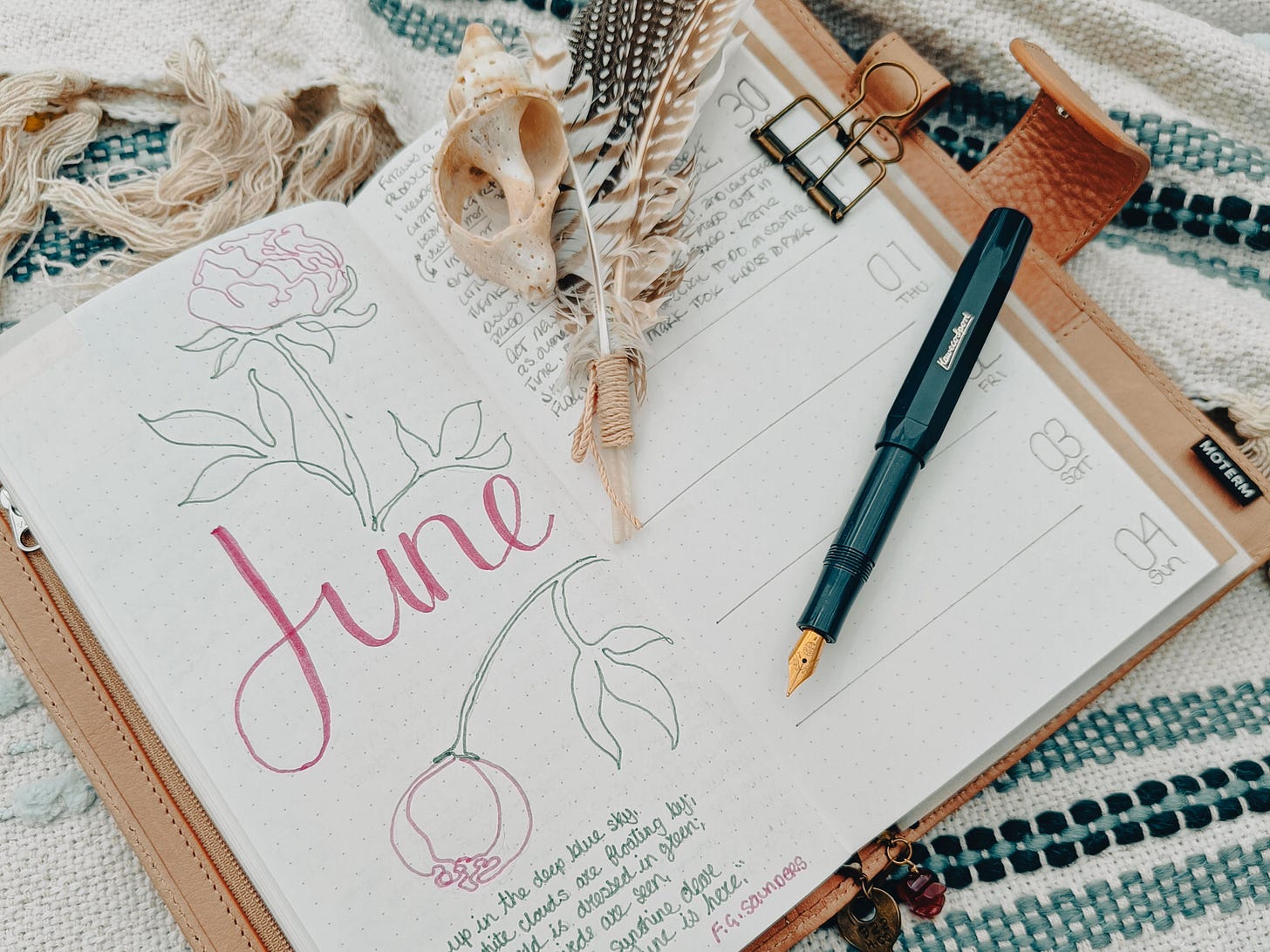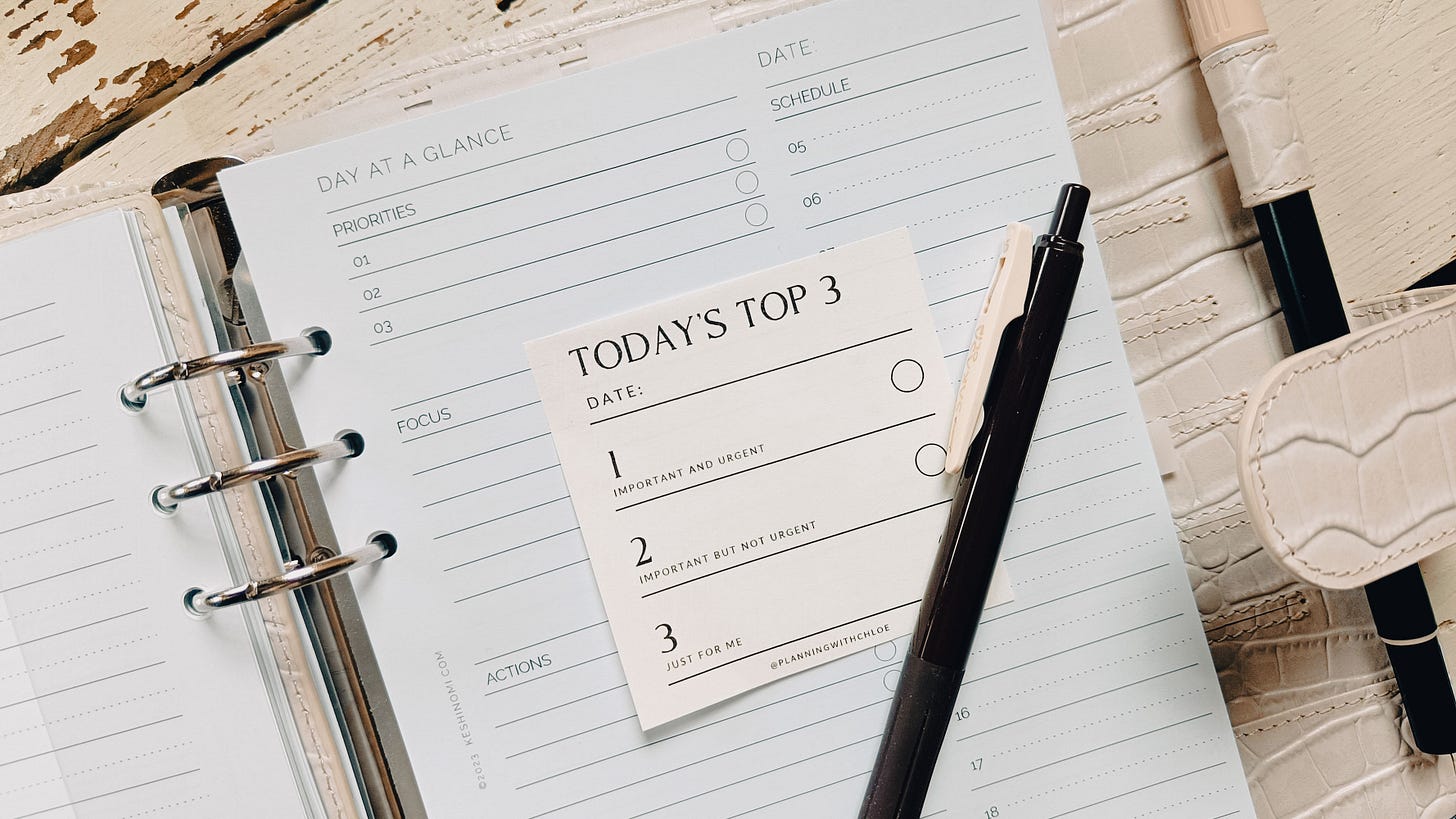Why We Doom-Scroll Before Bed and What to do About it.
We know it's bad and unproductive, yet we still do it. Why?
I’m embarrassed to say I’ve occasionally found myself in a late-night YouTube Shorts vortex (CallMeKris, that guy who mixes paint colours, random Shorts about puzzles).
And although YouTube technically isn’t social media, it’s premise is still the same - keep eye balls on the screen for the maximum amount of time and throw in as many adverts as possible.
Even though I know doom-scrolling right before falling asleep isn’t beneficial to my well-being, I still annoyingly find myself doing it.
So I decided it was time I dug into the cause of this form of self-sabotage to see if I could avoid falling victim to it, and replace it with something better.
If you want to reclaim that last hour of your day and turn it into a power hour of positivity, then this article is for you.
Doom-Scrolling Can Take Many Forms
Most people are familiar with endlessly scrolling Facebook, Instagram or YouTube Shorts. And pretty much every Gen X-er knows TikTok is a train wreck that's best avoided.
Which got me thinking…
Are the negative effects of doom-scrolling only limited to short-form content? What about looking for a documentary to watch on Disney+ or a podcast on Spotify?
Arguably, any form of screen time or device usage before bed can have a lasting impact on our sleep quality and productivity.
But is the impact always negative?
Devices are Bad and They’re Ruining Our Lives… Or are They?
It’s been well documented over the last few years that staying up late, staring at screens, the exciting stuff on those screens, and the type of light they emit, all play a part in why screen-time can negatively affect our sleep1.
It’s easy to assume that these problems are limited to just young people. However, even older adults are spending more time on their devices before bed. It seems that using phones and other tech before sleeping has increased for all ages since the pandemic2.
And apparently it isn’t great for anyone's well-being…
This got me wondering if there was a contrarian take because I often use my device to help me fall asleep, and so does my husband. We both enjoy listening to audiobooks or podcasts at bedtime. For me, it’s usually the book I’m summarising, while my husband is a fan of The Life Scientific by BBC Radio 4.
So, are we both disrupting our sleep or improving it?
It turns out that device use at night can be beneficial, according to a surprising study that found screen use before bed can actually help you sleep.3 But let’s be clear, it was the passive use of non-stimulating entertainment that helped, as opposed to actively doom-scrolling.
The Psychology Behind Doom-Scrolling
Okay, so device usage before bed can be beneficial, as long as we’re mindful of the type of content we’re consuming.
And we know the type of content we need to avoid over consuming is social media because it can lead to anxiety.
So why are we still like moths to a flame when it comes to doom-scrolling?
According to psychiatrist Ken Yeager, humans are hardwired to focus on the negative4 due to our evolutionary instincts for survival. Our brains are naturally drawn to negative information as a way to protect ourselves from harm.
However, last time I checked, scrolling social media wasn’t imperative to our survival or human evolution.
So what gives?
Social Media and the Curiosity Gap
It turns out that social media is taking advantage of a popular theory about curiosity - that it motivates learning. According to George Loewenstein, curiosity is a feeling of wanting to know something when we realize there is a gap in our knowledge. Loewenstein's information gap theory5 suggests that curiosity works similarly to other drive states, like hunger, which motivates us to eat.
So, social media drives a state of curiosity, which in turn motivates us to continue scrolling ☠️
But How do We Defeat this Attack on Our Natural Instincts?
One option is to go cold-turkey by keeping our smart phones and devices out of our bedrooms, or using apps that lock us out during vital sleeping hours.
But if you know you’ll buckle by white-knuckling it, then an alternative is to follow what James Clear says about every action we take casting a vote for the type of person we want to become.
Here’s how I’m turning the last hour of my day into a power hour, using the key insights I got from Chapter 5 of the book "The Gap and the Gain" by Dan Sullivan & Dr Benjamin P. Hardy (affiliate link *).
Create a Power Hour of Positivity
First, The Gap and Gain recommends we make the decision to be the type of person who maximises the final moments before sleep - this will be our secret to unlocking success.
“Your identity is how you see yourself and it drives your behaviour, but your behaviour also drives your identity.” Benjamin Hardy
My current bedtime practice is to have a plan for something to listen to on Audible, I set my smart phone to airplane mode (I already have DND set-up for the hours 10pm - 7am), then I grab my journal.
Next, chapter 5 of the book lays out how to create a new behaviour by using the time before bed to journal three specific wins from the day, as well as three planned wins for the next day. Doing this will build our confidence, as well as help us to stay motivated and focused.
In the book, Hardy says stick to no more than 3 wins and make sure they are important not urgent, as defined by the Eisenhower Matrix.
My current practice is to write a few lines about the things I’m grateful for from my day - I’ve shared my gratitude journal plenty of times before here. However, I’m probably not going to change this habit to make it just 3 wins, as I like doing a micro journal entry of the day. After I’ve spent a few moments rewinding over my day to spot the positives, I press play on Audible and set the timer for 60mins so it will switch-off.

My challenge moving forward will be consistently logging 3 wins for the day ahead. My planner has the space to do it so I really have no excuse!

Finally, Hardy and Sullivan say to share these wins with an accountability partner to tap into Pearson’s Law, which states: When performance is measured, performance improves. When performance is measured and reported, the rate of improvement accelerates.
As an introvert, this is one I’ll struggle with. My easy option is to share my planned wins with my husband.
In The Gap and Gain, Hardy says we’re creating the story of our life by journaling our 3 wins from the day, as well as the 3 wins we want to have tomorrow. That’s why planning our day the night before is vital. If we don’t know what we’re going to do we’ll usually default to the easiest option.
“Then, in the morning, and before you start looking at your phone, give yourself space to meditate and journal about your goals and what you’re trying to accomplish” - Benjamin Hardy
This level of focus also allows us to take advantage of Selective Attention6 according to Hardy, which is the ability to choose and concentrate on specific information while ignoring other irrelevant or distracting information.
Plus we can seize Information Gap Theory to our advantage by using it to drive a state of curiosity around achieving our 3 wins.
Next Action:
So my question to you is: Can you commit to journaling your wins, setting 3 meaningful wins, and sharing your progress with your accountability partner?
Don't let another night slip away Planner Friend. Embrace the bedtime power hour and transform your day.
Chloe x
Additional Resources
Listen or read "The Gap and the Gain" by Dan Sullivan & Dr Benjamin P. Hardy (affiliate link *)
Follow Benjamin Hardy on Medium, where he regularly publishes articles.
Paid members of Planning with Chloe can access my book notes and chapter summaries here.
* Please note: I personally found and purchased this [Audible] book, but as an Amazon Associate I earn from any qualifying purchases you may make after clicking these links.
Screen Time and Insomnia. By Clare Knight, B.Sc. Reviewed by Sophia Coveney in News-Medical.Net
Bedtime screen use in middle-aged and older adults growing during pandemic. Madeleine M. Grigg-Damberger, MD; Kimberly K. Yeager, MD. Published Online: December 17, 2020. Journal of Clinical Sleep Medicine.
Surprising study finds screen use before bed can actually help you sleep. By Rich Haridy. February 09, 2022. New Atlas.
What Is Doomscrolling? Experts Explain Why We Do it—And How to Stop. By Korin Miller. Updated on November 14, 2023. Health.com
The Psychology and Neuroscience of Curiosity. Celeste Kidd, Benjamin Y. Hayden. 4 November 2015. ScienceDirect.
How We Use Selective Attention to Filter Information and Focus. By Kendra Cherry, MSEd. Updated on December 18, 2023. Medically reviewed by Daniel B. Block, MD. VeryWellMind.com





